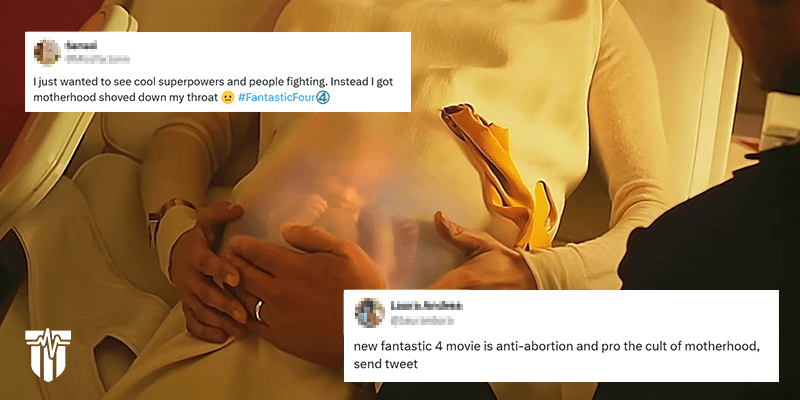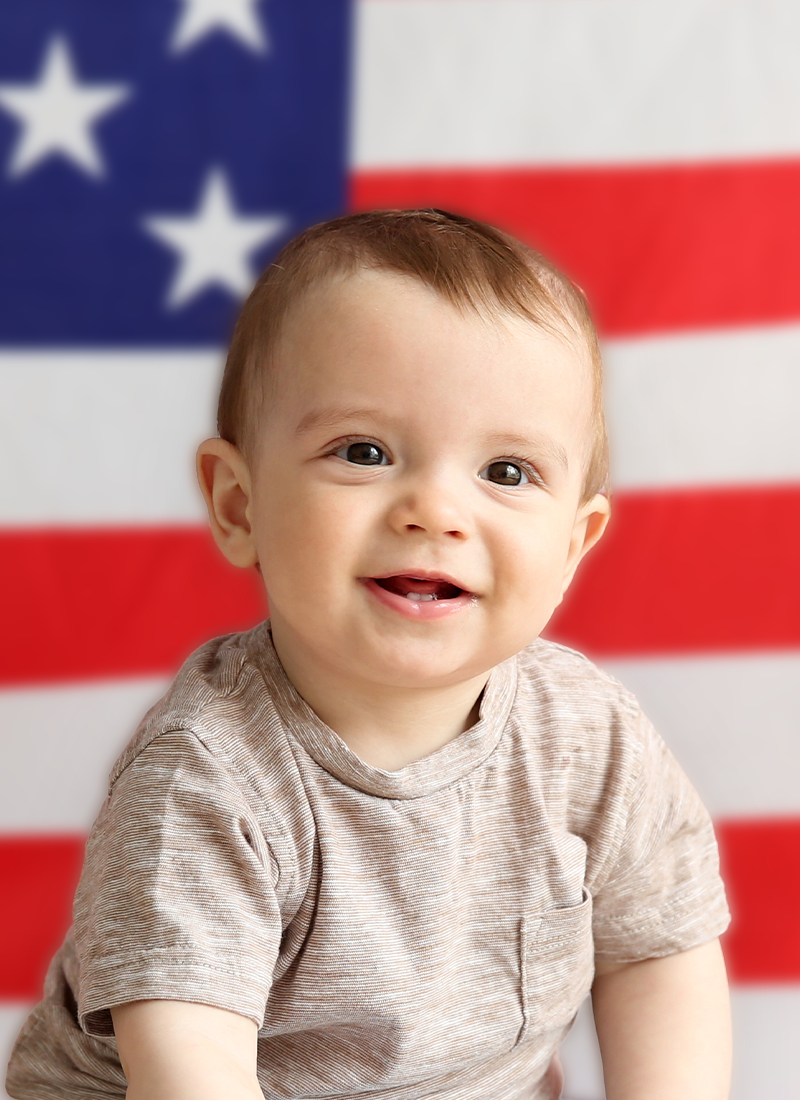(Spoiler warning)
In a surprising twist, Hollywood has produced something Pro-Life—and the Left can’t handle it.
The new Fantastic Four reboot has sparked backlash from anti-Lifers for centering the film on something innocent: a baby.
Yes, the latest Marvel blockbuster is pro-baby, pro-family, and pro-motherhood. And that’s exactly what makes it so powerful.
The film opens with a heartwarming scene—Sue Storm, played by Vanessa Kirby, is pregnant after years of infertility. Her and Reed Richards’ joy is deeply moving. Right from the beginning, the story centers on their unborn son—not as a vague “future child,” not as a burden or an abstract idea, but as a real baby, worth protecting at all costs.
And that’s what’s driving abortion activists mad.
Story continues below.

Don’t miss important Pro-Life stories like this.
>> Get the Pro-Life Weekly Highlight just once a week:
In a culture where preborn children are often dismissed as “clumps of cells” or “just fetuses,” Fantastic Four took a different approach. The unborn baby in the film is shown as a human life worth celebrating—and defending.
However, their undisturbed excitement over the pregnancy is short-lived. The villain, Galactus, delivers a chilling ultimatum: hand over their unborn son—or the Earth will be destroyed. And the heroes refuse. Why? Because that baby’s life matters. He’s not a symbol or just a “thing”—he’s their son.
Later in the movie, Reed Richards, played by Pedro Pascal, worries about whether their son has been affected by their space-gained superpowers. Sue uses her invisibility powers to turn her womb transparent so they can see baby Franklin. This moment is a direct contradiction to the lie that preborn children are not alive or not human, showing his perfectly formed body and sweet smile.
“There’s nothing wrong. He’s absolutely perfect,” Sue says in the film.
Vanessa Kirby, who plays Sue Storm, reflected on the role in a moving interview with Variety:
“In a way, it taught me so much about motherhood, because that’s what motherhood is. It’s not a passive thing. To give birth, you have to be completely, totally fierce. I’m so happy that you feel that. That’s so moving to me, and all I could have hoped for her.”
She went on to emphasize just how central the baby is to the story:
“It was so moving. It was important to us to have this baby at the center of this family, and for these men being uncles and a father. This baby really is at the heart of the story, and there’s something about this new life that they’re protecting. They’re not just protecting the world. It’s about what this new consciousness represents.”
This is the message our culture desperately needs: Life is worth protecting. Not because it’s convenient. Not because it fits someone’s plans. But because Life, especially in the womb, is sacred.
Kirby continued, speaking on a final scene where Sue Storm gives her life protecting her son:
“It was so helpful to know that it was a mother’s rage, and a mother’s love, because it felt animal. I wanted it to feel more primal, rather than just, ‘I’m trying to defeat this enemy for everybody.’ It’s more like, ‘I’m fighting to save my child.’ I wanted to tap into how fierce the feminine is, while knowing that Sue also embodies a very soft femininity as well.”
And finally, the line that captures the entire heart of this film:
“Mothers are honestly warriors, everyday superheroes. We all know that, because we all come from one.”
This is the kind of messaging we need from mainstream media. In a world that too often celebrates abortion as empowerment, Fantastic Four tells a different story: that motherhood is noble, babies are valuable, and family is worth fighting for.
Thank you for reading this story! If you support our Pro-Life ministry, chip in with a life-saving contribution today!



